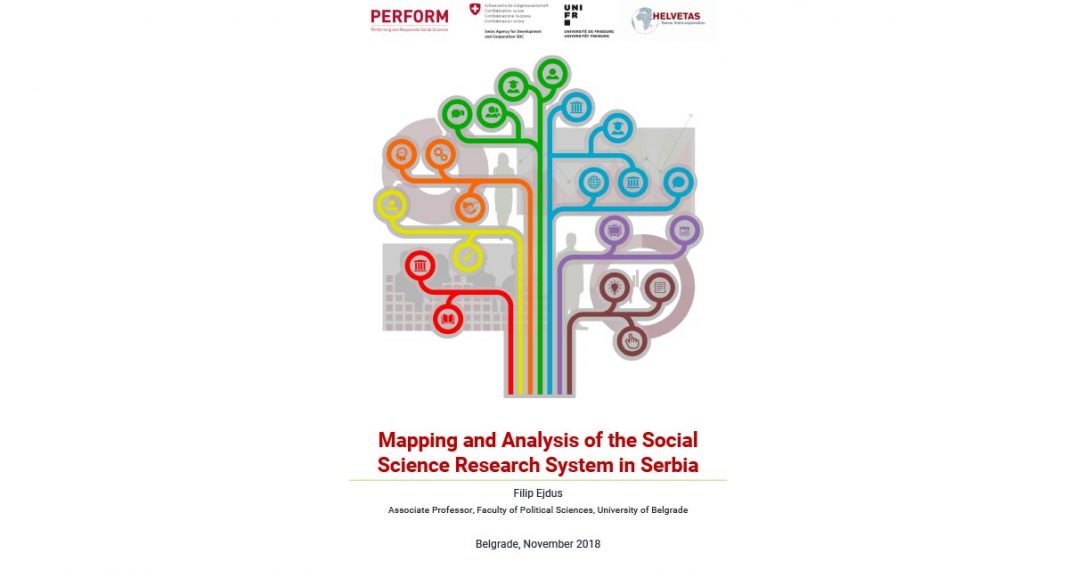Mapping and Analysis of the Social Science Research System in Serbia
The aim of this study is to gain a thorough understanding of the Social Science Research System (SSRS) in Serbia. To that end, the report first outlines the basic parameters of the system by mapping its key stakeholders, analysing their relationships and different purposes of those relationships.
The report also devises a set of recommendations on how to improve performance of the SSRS. The conclusion identifies three ways of changing the SSRS. The first one is to change the stakeholders. While some changes of this sort are still possible and needed, the historic window of opportunity for such a radical change in Serbia has long passed. The second way to change a system is to change interconnections between its parts.
Here, the clientelistic nexus between political and scientific elites needs to be cut, while the intellectual link that connects the SSH research to policy making and higher education need to be strengthened. Moreover, regulatory and funding functions of the governing bodies need to be institutionally separated. The third way of changing the system is to change its purpose.
SSRS should not be used as a form of social welfare, a goal worth pursuing but through other means and policies. The purpose of the SSH should not be to generate illegitimate personal, corporate or political gain either but solely to create and disseminate knowledge and support social and economic development. To that end, the government should foster academically excellent and socially relevant research in SSH through merit-based peer-reviewed funding and a regulatory framework that will enable excellence, mobility, integrity and accountability.
DOWNLOAD RELATED DOCUMENTS




